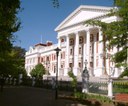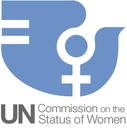MLGI announces the release of the Capable Cities Index: The capacity of cities (by Dr DM Powell and M O’Donovan). The CCI is a composite index that ranks the 27 largest cities in South Africa on the basis of their consistency in maintaining high levels of capacity, performance and compliance over the period 2010 to 2014. A capable city is one that maintains consistently high scores in all three components of capability.
Civil Society Prison Reform Initiative (CSPRI) is seeking to appoint a full-time researcher, on a one year contract which is renewable subject to availability of donor funding.
This week, the director of the Community Law Centre, Prof Jaap de Visser in collaboration with Prof Stephen Berrisford from the African Centre for Cities, taught a course on urban and regional planning. The course is designed to equip practitioners in the planning and legal professions, in private and government practice, to meet the challenges of implementing the Spatial Planning and Land Use Management Act, 2013 (SPLUMA).
Prof Henk Kummeling, was appointed distinguished professor of Utrecht University as of 1 April 2015. Kummeling is Extraordinary Professor at Community Law Centre.
In the past few weeks Civic Protest Barometer (CPB)has drawn significant attention from the media, civil society, and state bodies since its publication. This week Daily Maverick started doing a series of articles based on the barometer.
On Monday, Community Law Centre hosted a ‘brown bag seminar’ discussing, how the work of lawyers mends the postcolonial state. The seminar zeroed down to theoretical and methodological reflections based on legal ethnography in Zambia.
A researcher at the Community Law Centre, Dr Enoch Chilemba was invited to make a presentation at the Advanced Disability Rights Course held at the University of Pretoria, Centre for Human Rights from 9 to 13 March 2015. He presented on ‘The Implementation of Disability Rights in Malawi’.
The United Nations Development Programme (UNDP) in conjunction with the United Nations Capital Development Fund appointed Prof Jaap De Visser to review Lesotho’s Local government Act. This is in line with the country’s efforts to bring its Local Government Act of 1997 in line with this policy.
Today, Community Law Centre hosted a lunchtime talk on police impunity, entitled: From Ficksburg to Ferguson, or Andries Tatane to Michael Brown: Challenges to police accountability in South Africa and the United States. The speakers were Prof Rodney Uphoff (University of Missouri) and Prof Lukas Muntingh and Gwen Dereymaeker (Civil Society Prison Reform Initiative).
Yesterday, Parliament’s portfolio committee on Justice and Correctional Services started with day one of public hearings into the controversial amendments to the Sexual Offences Legislation that aim to decriminalise consenting sexual activity between teenagers in the same age group.
The Government of South Africa is hosting the fourth expert group meeting for the revision of these rules from 2-5 March 2015. Lukas Muntingh of CSPRI is attending as an independent observer.
On 2 March 2015, Professor Ebenezer Durojaye, the project head of the socio-economic rights, was part of a delegation convined the Department of Women Affairs within the Presidency. This was for an interactive session with members of civil society groups and government departments regarding South Africa’s report to the UN Commission on the Status of Women.











